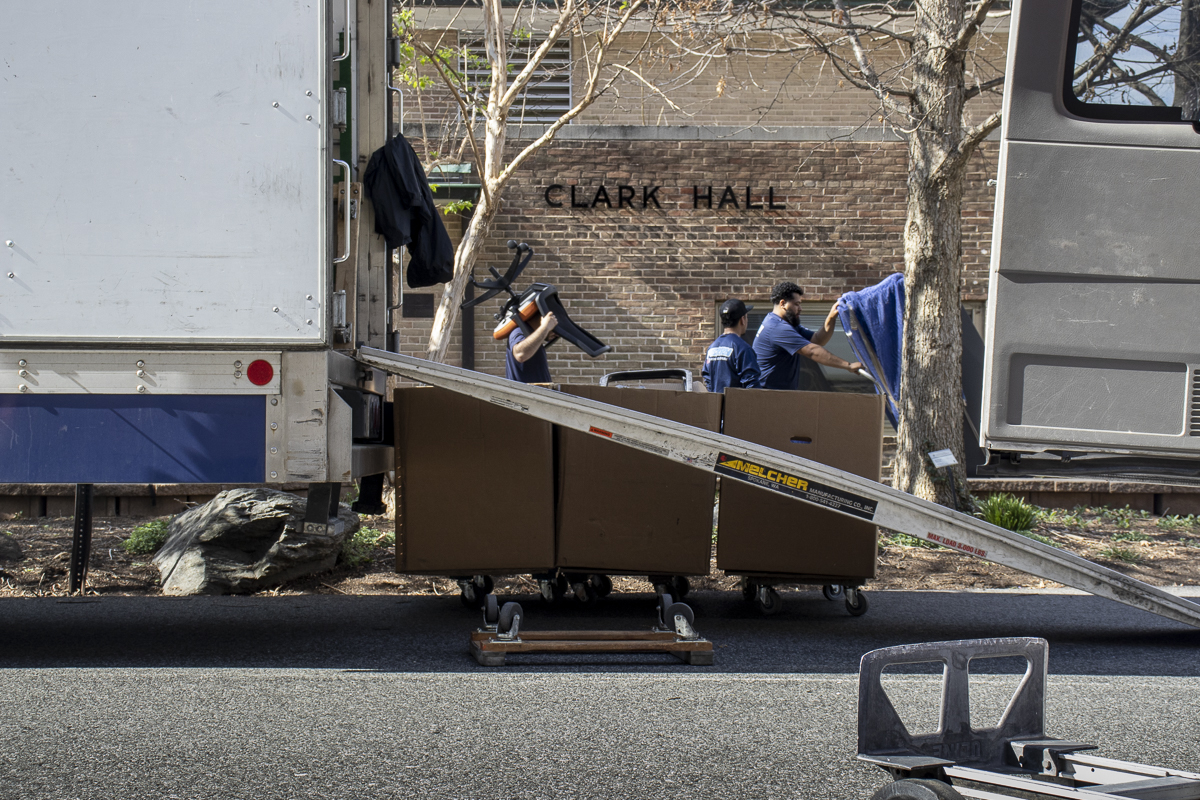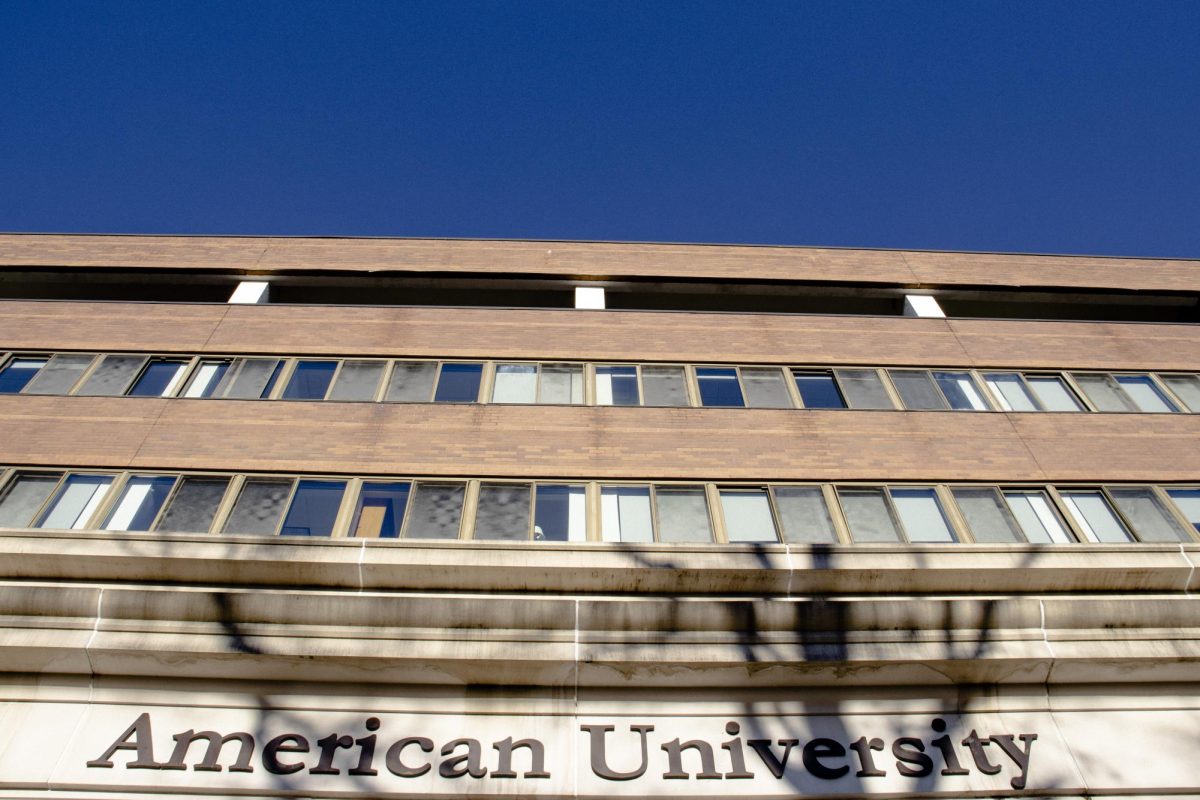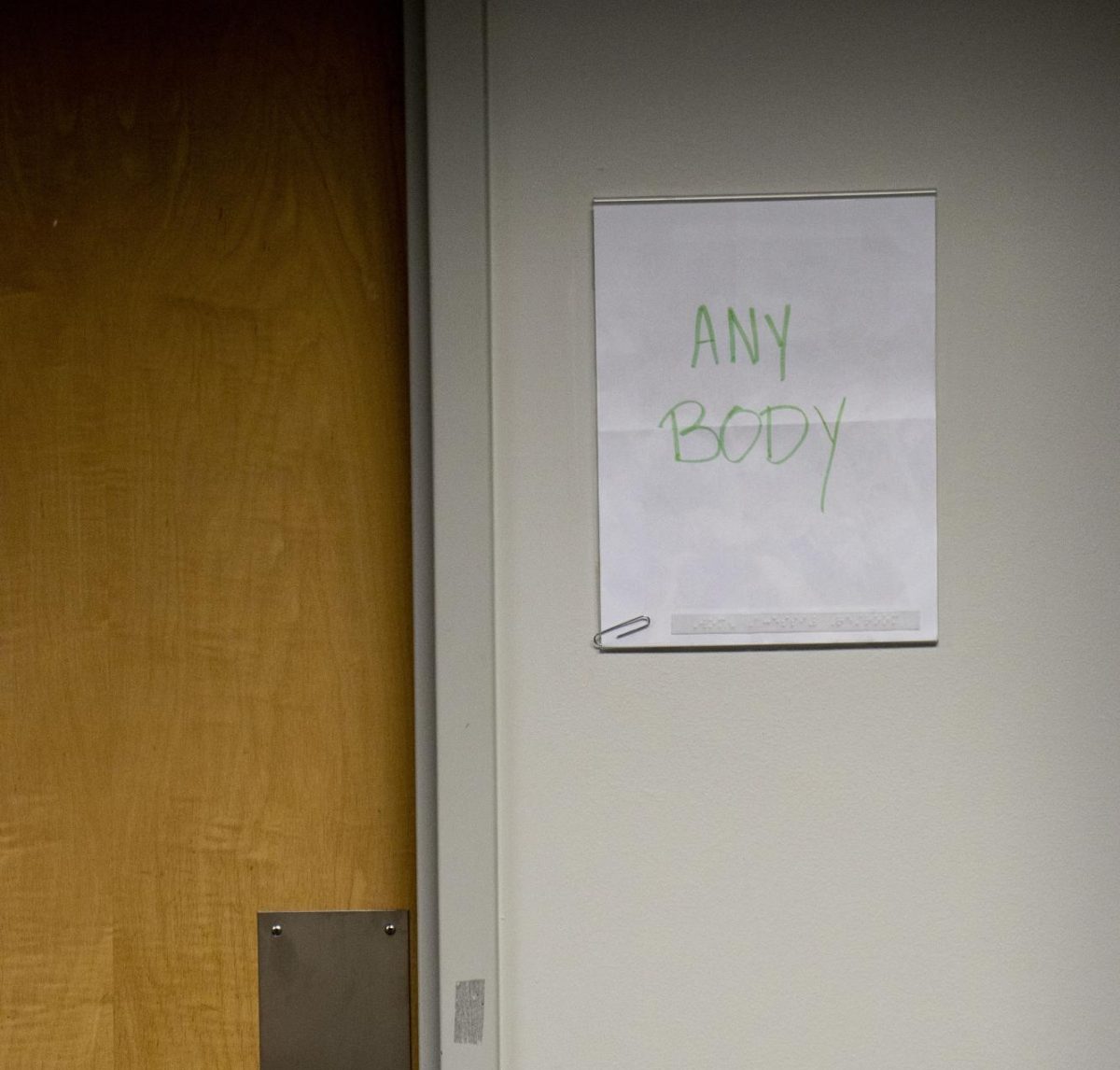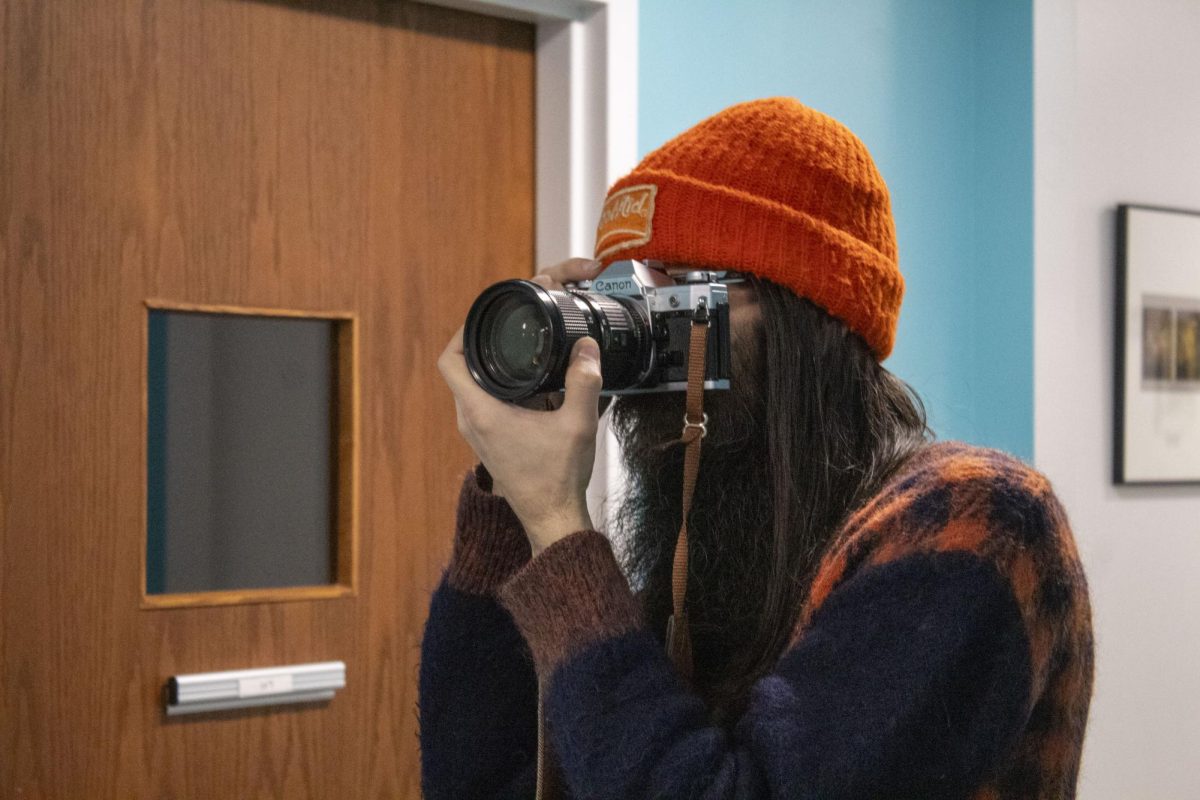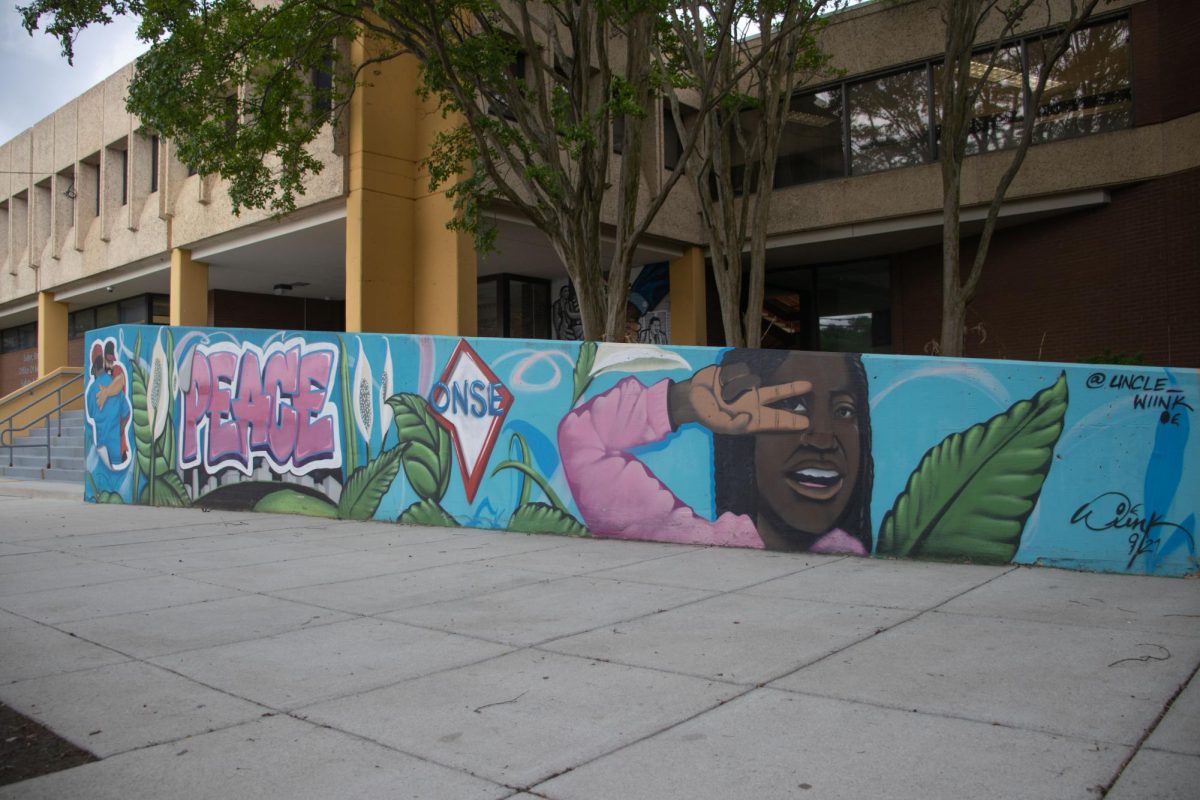In college, Roshan Abraham decided he could spend the rest of his life studying literature.
“Back when I was an undergrad, people didn’t worry as much about the question of ‘What are you going to do with that?’” Abraham said. “People just went for the majors that interested them. And so I found literature in classical languages.”
He graduated from the University of Kansas with a bachelor’s degree in English literature and classical languages, and went on to earn a master’s and doctorate from the University of Pennsylvania in classical studies.
Abraham joined American University as an adjunct professor in the Department of Philosophy and Religion in 2017 after seven years as a professor of classics and religious studies at Washington University. Two years later, he started a full-time position as an AUx instructor and advisor, helping first-year students plan their degrees while teaching the AUx I and II courses to them.
Abraham continued teaching the humanities throughout this time in the College of Arts and Sciences. So it came as a surprise in January when he found out he would start the fall semester as an academic advisor in the School of International Service.
Abraham said he and the rest of First-Year Advising learned in September 2024 that the administration would be phasing out their positions and that they would not be teaching AUx II the next spring. He said the announcement came at short notice and without proper warning. Now, some advisors are reconsidering their futures at AU, and one has already left the office.
First-year advisor Will Cann said Dean of Undergraduate Education and Academic Student Services Bridget Trogden told the office they would not be teaching AUx II at a Sept. 26, 2024, meeting. By May, first-year advisors would become academic advisors assigned to specific schools with new supervisors and office spaces, working with undergraduates of all four years.
According to Cann, Trogden said at the meeting the changes were not related to employee performance or the university’s operating budget deficit, which currently stands at $80 million, according to Chief Financial Officer Bronté Burleigh-Jones at a Dec. 5, 2024, budget meeting.
Abraham said March 27 was First-Year Advising’s last day in Clark Hall, its office building. Clark Hall is slated to be renovated and turned into student housing this summer, increasing the university’s housing revenue, Burleigh-Jones said at the Dec. 5, 2024, meeting.
Abraham said that although he and other first-year advisors had not experienced any change in salary as a result of their reassignments, they all moved from pay band 4.1 to 3.1, which was an effective demotion.
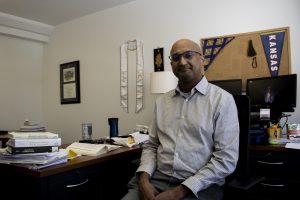
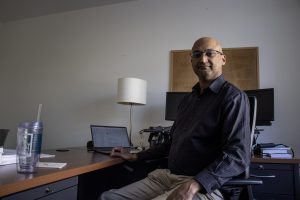
Each position at the university sits in a pay band, a guideline for how much an employee at that seniority level could make per year. According to the university’s annual salary pay band structure listed on the MyAU Portal, an employee in band 4.1 can make between $58,263 and $93,222 a year.
The most an employee in band 3.1 could earn is $77,083, meaning the change in pay band restricts advisors’ prospects for salary increases without promotions to positions in a higher band. “Most of us went from 4.1 to 3.1, so we went from being the midrange of our salary to being the top of our salary range,” Abraham said.
Cann, who started at First-Year Advising in late 2023 after graduating from AU in 2022, said one advisor had already left First-Year Advising after expressing frustration at the coming transfer.
“We have a lot of turnover in our office normally anyway, so a lot of people are coming and going, leaving, taking on new roles,” Cann said. “So we don’t know what it’s going to look like this semester, with the added pressure of not knowing what our job is going to look like.”
Cann said first-year advisors received their new job descriptions in late January, four months after Trogden informed them their roles would change. They said they would like to hear clarifying details from sources other than Trogden, who has been their only point of contact throughout the transition process.
“Everything is coming from her, which has also been a frustration, because a lot of the things she tells us are like, ‘Oh, it’s up to HR’ or ‘It’s up to other people in admin,’ but we don’t know who those people are,” Cann said.
Trogden said she and the Office of Undergraduate Education and Academic Student Services aim to create a career ladder that incentivizes advisors to stay with students for their full four years.
“We’d like to be able to have people who are working here as advisors for a long period of time, and be able to feel that they have professional autonomy, recognition and purpose in those jobs,” Trogden said.
Jason D’Angelo, a first-year advisor, said a large reason for turnover in First- Year Advising is low pay for its highly educated employees, who feel undervalued by the university.
The first-year advisor position involves teaching, so first-year advisors are required to have a master’s degree, they said. D’Angelo holds graduate degrees in English and linguistics.
“Like a third of us have Ph.D.s and are doctors and earn less than $65,000 a year doing a job teaching,” D’Angelo said.

Abraham said his transfer to SIS despite having indicated a preference for CAS made him feel that administrators did not value his expertise and experience. Abraham started in 2019, making him one of the longest-serving first-year advisors, he said.
It looked like administration had been planning for a while to close First-Year Advising, he said, while advisors had no idea.
“It was completely unexpected for all of us,” Abraham said. “It really just hit us like an oncoming train. We thought everything was good, enjoying our jobs, enjoying teaching, and then out of nowhere, we get told, essentially, our job won’t exist anymore.”
Trogden said first-year advisors were the first group outside of administration to learn of the transition.
“They found out first, absolutely, because the people who are most impacted should know things before other people do,” Trogden said.
In an Oct. 2, 2024, Faculty Senate meeting, Acting Provost Vicky Wilkins said she and other leaders had decided two years prior to move first-year advisors into specific schools.
“The first round of integration of FYAs into the schools happened in [Academic Year] 23-24, we are just finishing that effort and making the final physical changes,” Wilkins said in an email to AWOL.
In the Fall 2023 semester, first-year advisors started working only with first-year students in assigned schools, according to UEAS documents provided by Trogden. A March 2023 Office of the Provost memo said this would improve student experiences by allowing advisors to focus on one school instead of six. There is no mention in the memo of a plan to redistribute first-year advisors to specific schools.
“With the changes described in this memo, we aim to create a continuous, school-focused advising experience across all undergraduate years, including when students are undeclared and exploring options,” the memo said.
Trogden told first-year advisors their position would change on Sept. 26, 2024, four days before the course catalog for the Spring 2025 semester came out, according to the Fall 2024 semester academic calendar.
D’Angelo said the period between the catalog’s release and course registration is a period of increased activity for advisors where they meet with students to advise them on which courses to take. During this time, advisors also teach AUx I classes how to navigate the course catalog, they said.
First-year advisors’ official titles are “AUx Instructor and Advisor.” From First-Year Advising’s advent in 2018 to the Fall 2024 semester, the advisors have taught the AUx I and AUx II courses.
Abraham said he was co-chair of the working group that developed AUx II, so it was difficult hearing that he would not be teaching the course in the spring without knowing why.
“None of us were involved, even though we’d been the ones teaching AUx II for years,” Abraham said.
D’Angelo said not teaching in the spring has made them question their original reasons for coming to AU.
“I took this job because it was a teaching-advising role, which is what my background is in,” D’Angelo said. “I don’t want to be just an advisor. That’s not what I signed up for.”
Trogden said the changes to advising and AUx are based on student feedback. She said UEAS was reworking AUx because it had found that its curriculum was not meeting students’ needs as well, citing data collected from AUx courses.
“We’ve got data in listening to our students that advising isn’t meeting their needs, and so we need to be able to have better investments in advising,” Trogden said.
Martyn Oliver, the faculty chair of the AU Core Curriculum, said he chaired a Faculty Senate subcommittee last spring to revise the AUx curriculum, but only became aware of the changes to First-Year Advising in September 2024. He said the reworking of AUx has nothing to do with any staffing changes, which posed a dilemma in the ongoing design of the new courses.
“Whatever curriculum we’re coming up with — which we were partway into having organized — the instructional model will have to change because those instructors are no longer available to teach that class,” Oliver said.
At the Oct. 2, 2024, Faculty Senate meeting, Wilkins said administrators were moving AUx “back into the hands” of faculty who had helped reevaluate the AUx curriculum, according to a transcript provided by a first-year advisor who requested to remain anonymous.
“We have full-time faculty really playing a role, who have expertise in those areas and have frankly been saying, ‘I want to teach that, I want to be part of that,’” Wilkins said at the meeting.
Oliver said the temporary replacement for AUx II is the course AU Encounters, which is currently being taught to all first-year students. According to AU’s course catalog, the course analyzes U.S. society and culture through the works and legacies of significant individuals or ideas. This semester, the course is based on the works of the writer James Baldwin.
Oliver said AU Encounters instructors are meant to be facilitators of conversations about the course’s subject material, not experts in it.
“Then you would need every facilitator for AU Encounters to be an expert in James Baldwin, and that’s not what we have,” Oliver said. “There are not 30 experts in James Baldwin hanging around in D.C. waiting to teach this course.”
Abraham said being told first-year advisors would not be teaching AU Encounters sounded like administration telling them they were unqualified, despite their high levels of education.
“When they meet in Faculty Senate, they talk about AU Encounters, how they’re going to have experts teaching the course, which, by extension, suggests that we are not experts,” Abraham said.
Abraham still teaches religion and literature as an adjunct professor. Trogden said advisors with adjunct appointments will still be able to teach, provided they “work it out” with their advising jobs.
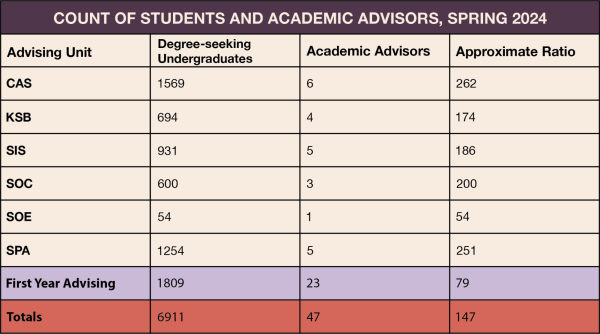
D’Angelo said the responsibilities of an AUx instructor and advisor listed in their job description were initially 40% teaching and 60% advising. Now, they said, they are 70% advising, 5% recruitment and orientation duties, 5% special projects and 20% academic record review, which was previously folded into advising duties.
According to the UEAS documents, first-year advisors have an average caseload of 79 students. Advisors for CAS, SIS and SPA, the three largest schools, work with average caseloads of 262, 254 and 186 primary-majoring students, respectively. When all major-and-minor-affiliated students are included, those rise to 436, 303 and 219.
Trogden said the goal in reassigning first-year advisors to specific schools was to lower average caseloads, so UEAS placed more advisors in larger schools.
Abraham said he did not know why UEAS reassigned him to SIS. He said Trogden did not have an answer when asked how specific advisors were chosen for certain schools.
“I’ve been an adjunct in Arts and Sciences for eight years,” Abraham said. “I have a Ph.D. in the humanities, and I’ve been working with CAS already for about three years. So that was really an unexpected shock for me, that I wasn’t going to the school that to anyone would make the most sense.”
Trogden said Huron Consulting’s recommendations to the university on workforce structures last year did not influence the decision to close First-Year Advising. She also said it was unrelated to the staff union strike in 2022, which D’Angelo said first-year advisors played a large part in.
D’Angelo said a year ago, they were planning to stay at AU for the long-term. Now, they said, they are concerned for the long-term stability of their position.
“If they can change things so suddenly, without any consultation to the people impacted, do I really trust them to not just fire me randomly?” D’Angelo said.
Abraham said he has considered searching for a new job, but is choosing to stay for the time being.
“Ultimately, I still love what I do in terms of working with students and supporting students, and I still teach in religion and also in lit,” Abraham said. “So having a job is good. Finding a better job is harder and takes more time.”
This article was originally published in Issue 36 of AWOL’s magazine on April 15, 2025. You can see the rest of the issue here.
Editing by Stella Camerlengo, Ava Ramsdale, Julia Cucchiara, Ben Austin, Will Sytsma, Bailey Bish, Kalie Walker, Caleb Ogilvie, Grace Hagerman and Alexia Partouche.


